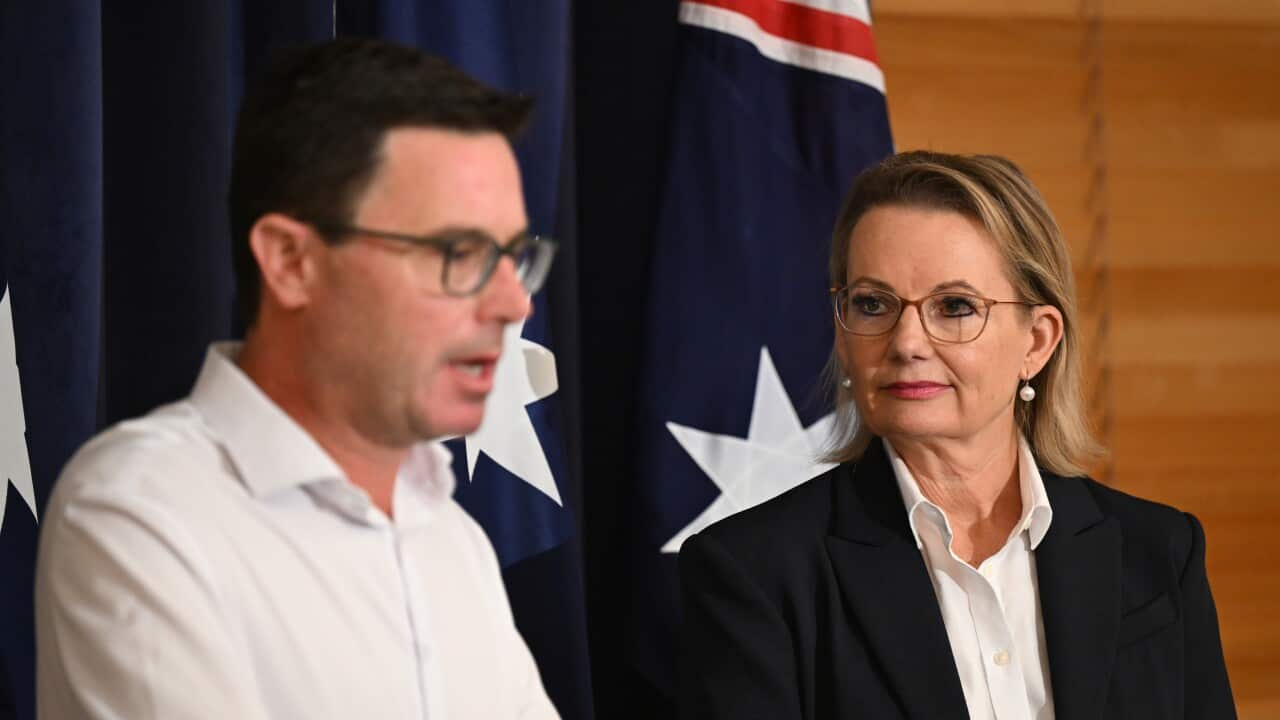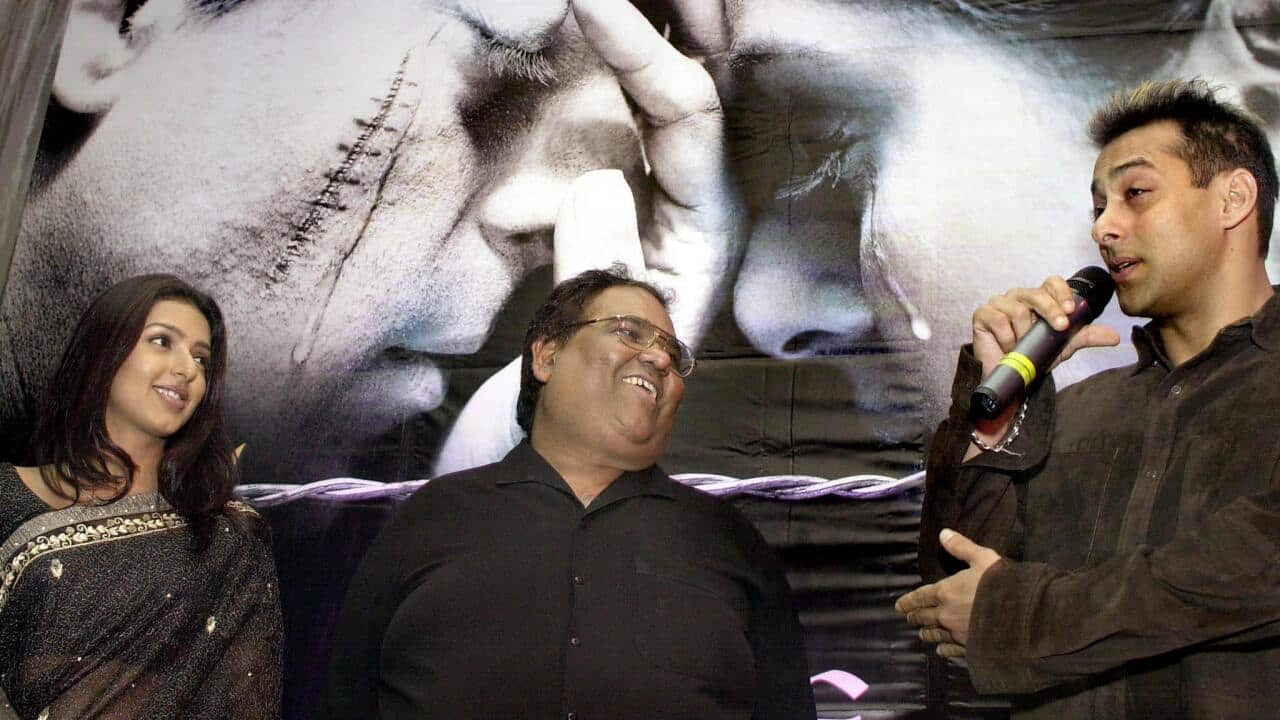ऑस्ट्रेलिया में out-of-home care में रह रहे बच्चों की संख्या में वृद्धि हुई है पर फोस्टर पेरेंट्स के आंकड़ें ज्यों के त्यों कम बने हुए हैं.
यह समस्या खासतौर पर गंभीर है एबोरिजिनल और बहुसांस्कृतिक समुदायों में जहाँ फोस्टर पेरेंट्स इन समुदायों के बच्चों की भाषा और संस्कृति के ज्ञान की जरूरत को बरक़रार रखने में सहायता कर सकतें हैं.
(Mo:) "It doesn't matter. As long as one of us is working, the other will be fine. I say, 'I know how to cook, I know how to clean, I know how to look after kids.' I always cooked."
(Samar:) "Yeah, you can cook fine. You can cook today then." (laughter ... fades under)
इन दोनों का बड़ा दिल तो है ही साथ ही इनके घर के दरवाज़े हर ज़रूरतमंद के लिये खुले भी हुए है.
दक्षिणी सिडनी के दंपत्ति Mo और Samar- जरूरतमंद बच्चों का गर्मजोशी से अपने घर में स्वागत करतें हैं.
"We can't change the world, but we can change a child's life. And if one day when that child grows up, for that one moment if he's thought about doing something wrong, if my wife and I, our memories, come into his mind and he stops for that one second, and it helps him stop doing what he was going to do that was going to be wrong, then, you know what, I'm ... I'm very happy with that. If we can make that little difference in a child's life that makes them say, 'Well, you know what, they didn't give up on me when I was younger, I'm not going to give up on life, I'm going to keep going..."
पिछले कई वर्षों में Mo और Samar ने न जाने कितने ही बच्चों का पालन पोषण किया है.
Arab-Muslim पृष्ठभूमि के Mo और Samar ने इसी समुदाय के कई बच्चों को थोडे समय तक अपने घर में रखकर ने केवल घर बल्कि संस्कृति से भी जोडें रखा.
साथ ही इन्होंने कई अन्य समुदायों के बच्चों को भी उतना ही प्यार दिया जितना की Arab-Muslim- बच्चों को.
समर बताती हैं की उनके घर के दरवाज़े सभी बच्चों के लिये बराबर खुले हुए हैं और वह भेदभाव नहीं करते.
"Whatever nationality, we don't really mind. But we did say we just want Muslim children, because we're both practising Muslims. But then when we saw how many kids are coming into care ... And all kids need love, they need somewhere to stay, they need somewhere to be happy, they just need somewhere to be kids."
फिलहाल Australia में 43,000 बच्चे out-of-home care सेवा में हैं.
New South Wales Family and Community Services की कार्यकारी निदेशक Simone Czech- के अनुसार इस वृद्धि के कई बड़े कारण हैं पर सबसे महत्वपूर्ण कारण है फोस्टर पेरेंट्स की कमी.
"The reason for the increase in the population is more about children are staying longer in out-of-home care. So they're actually not returning home. So, in years gone by, children would be restored more often than they are currently, and what that means is that we've needed more foster carers in the system."
फोइस्टर केयर होम्स में पल रहे 35 प्रतिशत बच्चे इंडिजेनस समुदाय के हैं परन्तु बाकी बच्चों के सांस्कृतिक पृष्ठभूमि के बारे में कोई आंकड़ें नहीं है.
परन्तु राज्य स्तर पर कुछ सर्वेक्षण और आंकड़ें मौजूद हैं.
उद्धरण के लिये New South Wales में 10 प्रतिशत और Victoria- में 13 प्रतिशत बच्चे ऐसे समुदायों से हैं जिनकी अंग्रेजी मातृ या पहली भाषा नहीं है.
इस क्षेत्र में कार्यरत संस्थाएं बताती हैं की विभिन्न सांस्कृतिक पृष्ठभूमि वाले बच्चों की संख्या ऐसे फोस्टर होम्स में काफी है और वह आशा करते हैं की जल्द ही बहुसांस्कृतिक समुदायों से प्लान पोषण करने वालों को नियुक्त कर लिया जाएगा.
पर इस कार्य में थोड़ी चुनातियों जरूर हैं.
बच्चों को उन्ही के समुदाय के पालन पोषण करने वालों के पास रखवाने वाले संस्थान Creating Links- की out-of-home care मेनेजर Tamena Yarak इन चुनातियेन के बारे में कुछ यूं बताती हैं.
"Culturally, foster care doesn't exist in some cultures. The word is hard to translate. We're having to do an education process with the community to just let them know what foster care's all about. But in some communities, they don't understand what it is."
Tamena Yarak के अनुसार बच्चों को उन्ही के सांस्कृतिक समुदाय के पालण पोषण करने वालों के सतह रखने के कई फायदे हैं.
"I can care for a child, but I might not be able to teach them the Jewish way of things or the Buddhist way, because I haven't been raised in that way. So it makes it hard for me to pass on those (things). As much as I want to, it makes it really hard."
Creating Links New South Wales- में चल रहह एक गैर सरकारी संस्थान है जो फिलहाल ७६ बहुसांस्कृतिक बच्चों के out-of-home care- के लिये जिम्मेवार है.
Tamena Yarak बताती हैं की कई बार बच्चे अपने साथ हुए दुर्व्यवहार की वजह से अपने समुदाय में नहीं रहना चाहते.
"There are occasions when kids are very adamant they don't want to go to the same cultural place. So then what we need to do is work very hard at developing a cultural plan to support the carer in maintaining the culture of that child. So it might be that we liaise with somebody from the community, who then does a lot of that cultural understanding with that particular child -- and the carer."
18 वार्षिये Sam- ने हाल ही में अपना फोस्टर केयर होम छोड़ा है.
उनके अनुसार कई वर्षों तक Lebanese-Muslim फोस्टर पेरेंट्स के साथ रहने का अनुभाव उनके लिये काफी सकारात्मक था.
"They love you. They treat you like you're part of the family. They're amazing. She's like my real mum. I don't look at her like my foster mum, because she grew me up, she taught me how to be a man, she taught me everything I know today."
पश्चिमी Sydney के फोस्टर पैरेंट Mo- मानते हैं की हमारी छोटी कोशिशों से ही दुनिया का भला हो सकता है में उनका विशवास ही उन्हें यह काम करने की प्रेरणा देता है.
"These children are our future, and we all need to understand this. We have to give them a chance. And I keep on saying it. We have to give them a chance, because, if we don't show them that we're more than willing to give them a chance, how are they going to believe that they have a chance in this world?"




